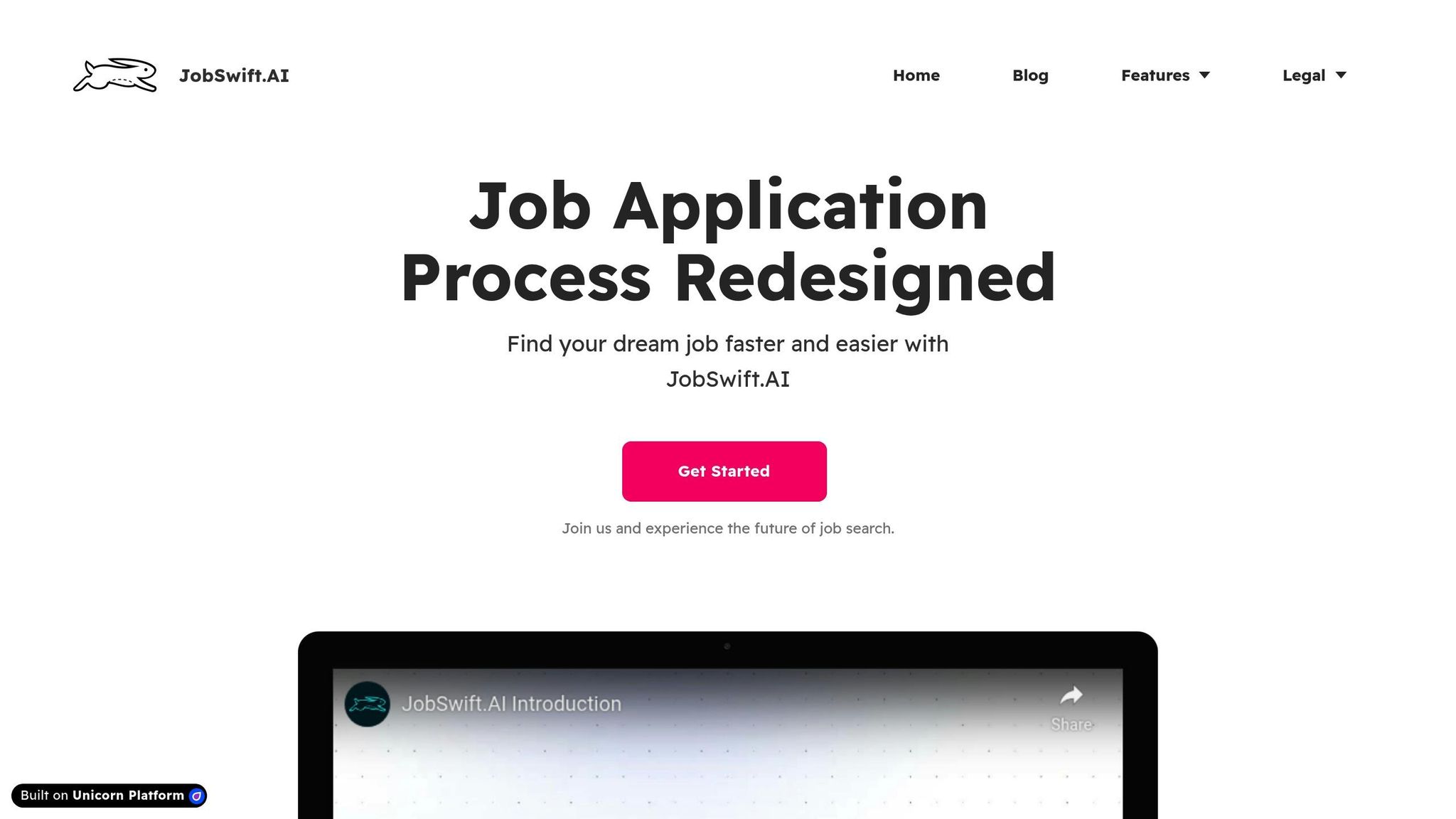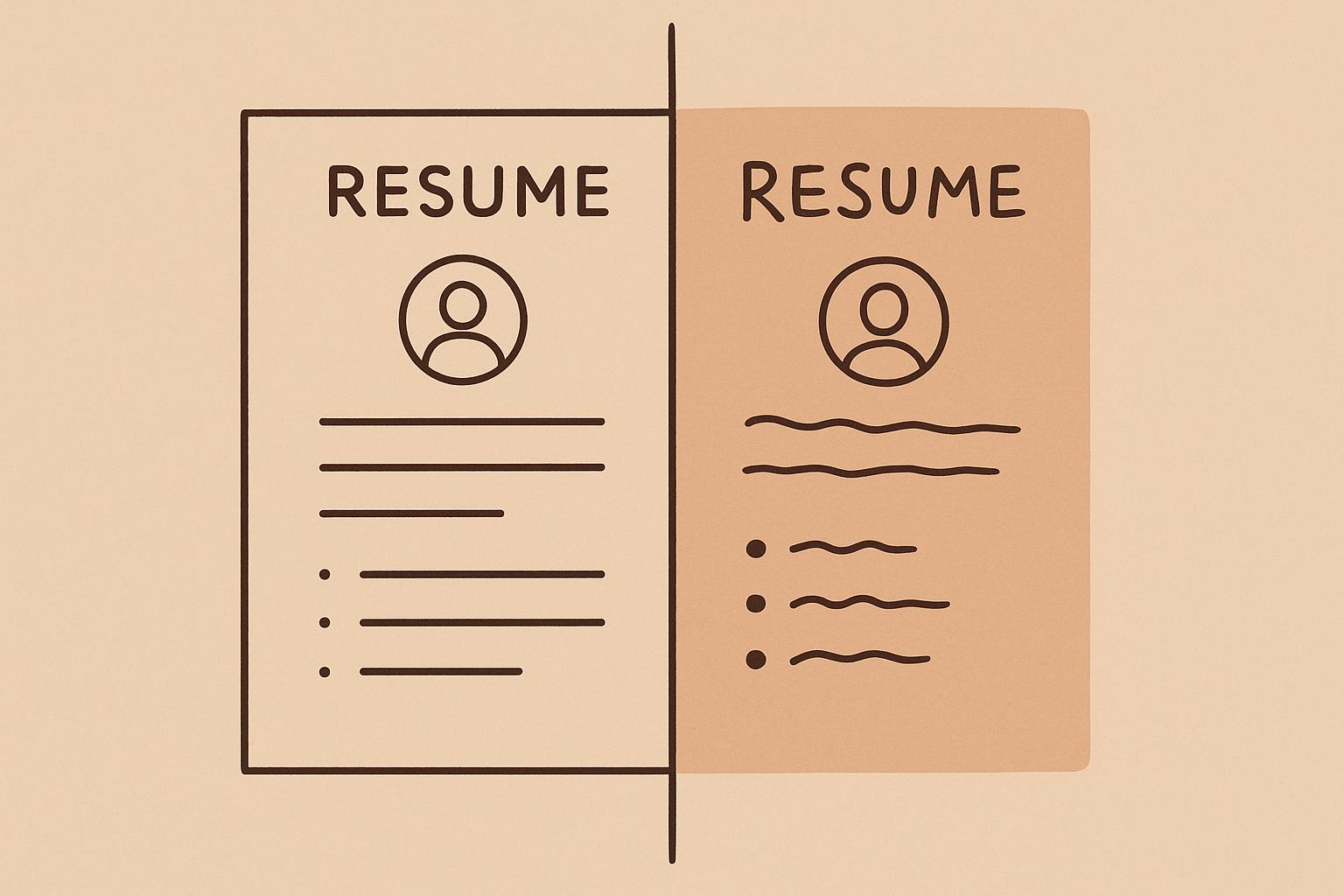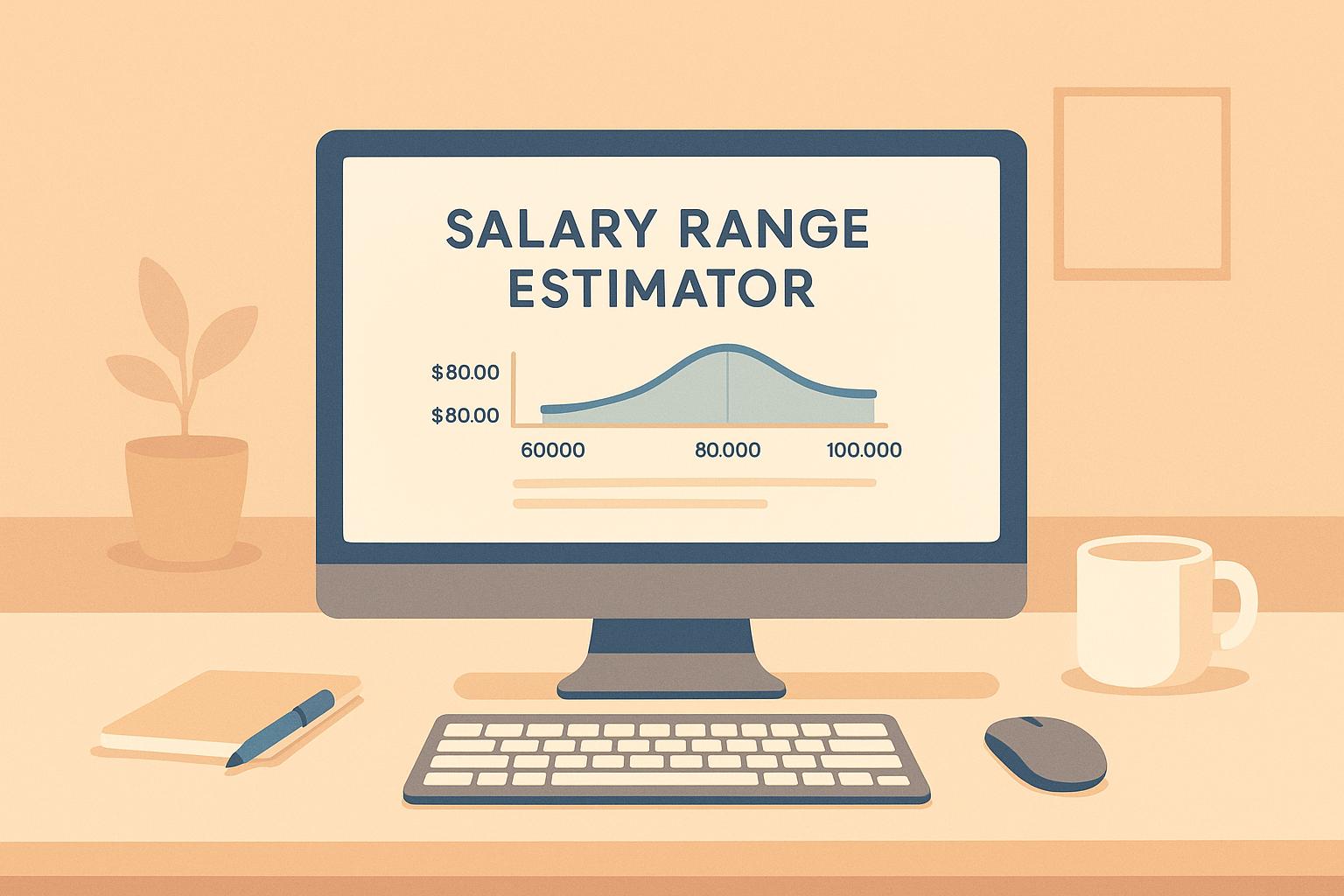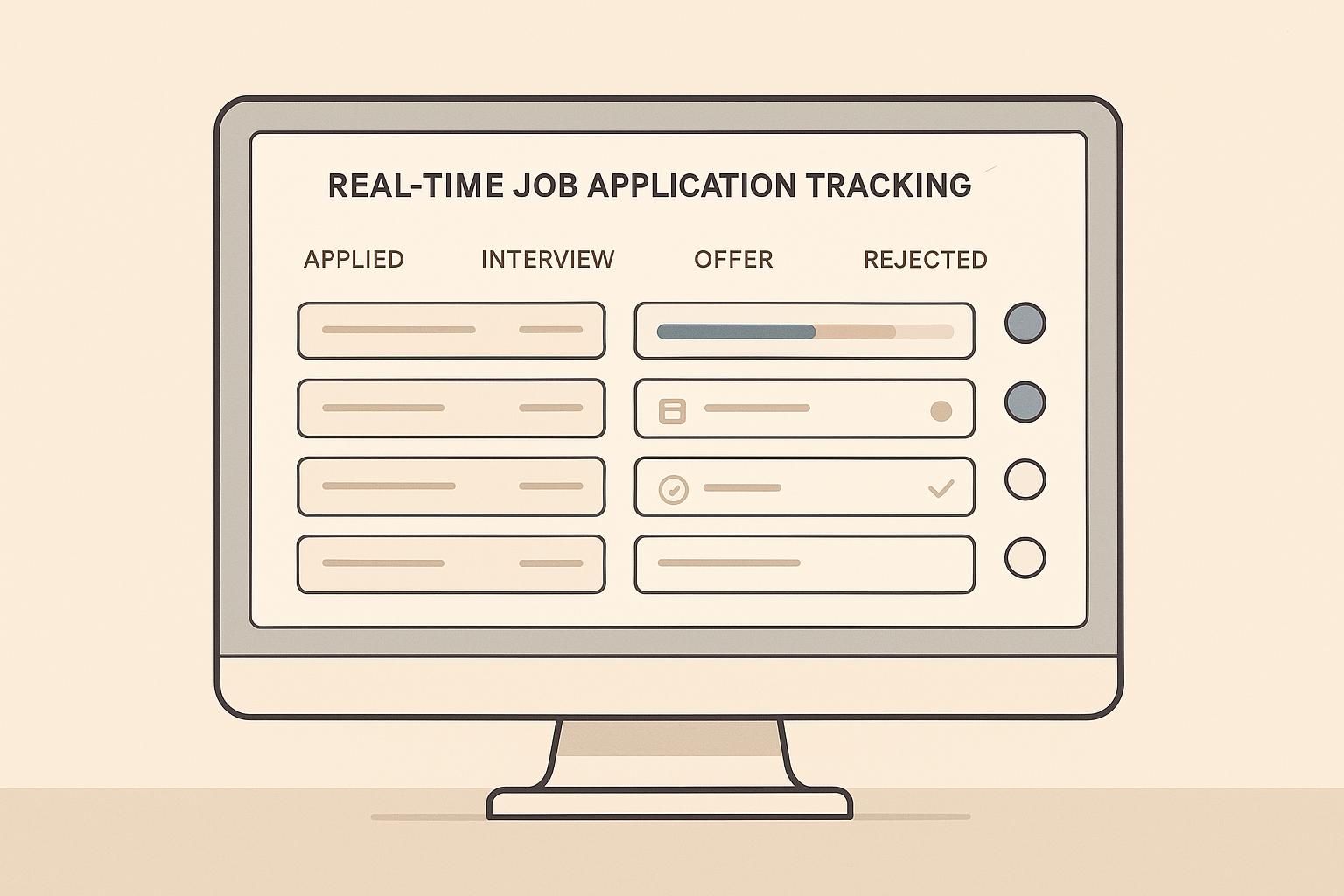Online job hunting is convenient but risky. Scams, fake job postings, and identity theft are common. Here's what you need to know:
- 30% of job seekers encounter fake postings, wasting time and risking financial loss.
- 27% report compromised personal data, and 7% fall victim to identity theft.
- In 2024, job scams caused a median loss of $1,500.
- Gig platforms are also risky: 1 in 3 users experience fraud.
To stay safe, focus on platforms that prioritize security. Look for features like:
- Data encryption to protect your information.
- Verified employers to avoid fake postings.
- AI-powered scam detection to flag suspicious activity.
Key Tip: Research platforms thoroughly. Check reviews, verify company details, and avoid offers that ask for upfront payments.
For example, tools like JobSwift.AI combine scam detection with job tracking to help you focus on legitimate opportunities.
7 Tips + 7 Job Search Platforms | Newcomer to Canada Ontario | My First Job
What Makes Job Platforms Safe
With job scams on the rise, secure platforms are stepping up with features designed to protect users. Knowing what to look for can help you choose a platform that prioritizes safety.
Data Privacy and Encryption
A secure job platform starts with protecting your personal information. This means using strong encryption (like HTTPS, indicated by the lock icon in your browser) to safeguard data transfers. Reliable platforms also have clear privacy policies explaining how your information is handled and offer multi-factor authentication to prevent unauthorized access to your account.
But keeping your data safe is just one part of the equation - ensuring that employers are legitimate is just as important.
Verified Job Postings and Employers
Fake job postings are a real problem. In fact, nearly three in ten job board users have fallen victim to fraudulent listings. That’s why employer verification is a must-have feature on any trustworthy platform.
Secure platforms go the extra mile by verifying employer details like company registration, official addresses, and representative identities. Some even require live video verification or onboarding sessions to confirm authenticity.
"Trust is earned through transparency, accountability, and protection. It's time job sites stepped up with enterprise-grade security for their users." - Fidel V., Chief Innovation Architect & Cybersecurity
These verification steps ensure you’re dealing with real companies offering genuine opportunities. To be extra cautious, it’s always a good idea to cross-check job postings on the company’s official website to confirm their legitimacy.
User Authentication and Scam Detection
Data security and employer verification are just the first steps. Platforms that prioritize safety also invest in advanced user authentication and scam detection tools.
Technologies like AI-powered behavioral analytics and email verification are used to spot suspicious activities. These tools can flag unusual job postings, detect inconsistencies in communication, and alert users in real time. Some platforms even monitor hiring forums and social media to intercept fake job postings before they reach users. Additionally, document authentication tools analyze uploaded files for signs of tampering or forgery, offering another layer of protection.
Real-time monitoring systems play a critical role in maintaining platform security. They track activity for red flags, like multiple job postings from unverified accounts or suspicious behavior patterns. When combined with human oversight, these systems create a robust defense against job-related scams.
Transparent features, such as in-app messaging and scam warning labels, also help users identify potential risks. Safe platforms often provide clear guidelines about legitimate hiring practices and educate users on how to spot common scam tactics.
How to Check if a Platform is Legitimate
When you're on the hunt for a job, ensuring the platform you're using is trustworthy is crucial. Before sharing your personal details or career aspirations, take a moment to evaluate the platform's credibility. Here's how you can do it:
Research the Platform's Reputation
Start by searching the platform's name alongside terms like "reviews", "complaints", or "scam reports." Look at independent review sites, check Better Business Bureau ratings, and see what people are saying on social media. A trustworthy platform will have a mix of positive and constructive reviews spread over time. On the other hand, scam sites often lack reviews or feature suspiciously glowing testimonials clustered together.
You should also look for credible news articles or press coverage about the platform. Reputable job sites are often mentioned in industry publications or business news outlets. If a platform claims to have been around for years but has no third-party coverage, that's a red flag.
Once you've assessed public opinion, dig deeper into the platform's transparency and support systems.
Check Transparency and Support
A legitimate platform will openly share its company details and history. Look for a physical address, information about its leadership team, and a clear company background.
"The reason why transparency is so appealing is largely due to cultural trends and human behavior. We like people who are transparent, so it makes sense that we like companies who are transparent, too. It's about being a real person, a real leader, and a real company." - Neil Patel
Test their support channels by reaching out with a simple question via email, phone, live chat, or help tickets. Legitimate platforms usually respond within 24–48 hours with professional and helpful answers. Be cautious of platforms that only offer a contact form or lack visible customer support options.
Take the time to read the terms of service and privacy policy. These documents should clearly explain how your data is used, stored, and protected. If the policies are vague or grant the platform excessive rights over your information, it's best to steer clear.
Once you're confident about the platform's reputation and transparency, the next step is to check its security measures.
Look for Security Certifications
Security certifications are like a report card for a platform's data protection and cybersecurity practices. In fact, 65% of respondents to ISC2's workforce study stated that cybersecurity certifications are the best way for industry professionals to demonstrate their knowledge.
Look for certifications from recognized organizations like ISACA, ISC2, or CompTIA. Common examples include CompTIA Security+, Certified Information Systems Security Professional (CISSP), and Certified Information Security Manager (CISM). These certifications indicate that the platform follows best practices in cybersecurity.
Additionally, check for compliance badges related to data protection laws like GDPR, CCPA, or SOC 2. These badges confirm that the platform adheres to strict standards for handling personal data. You can usually find these certifications in the website's footer or on dedicated security pages.
Always click on these badges to ensure they link to valid verification pages. If the badges don't link anywhere or lead to broken pages, consider it a major warning sign.
Common Job Platform Scams and How to Avoid Them
Job scams are becoming increasingly sophisticated, posing risks not only to your finances but also to your personal information. This highlights the importance of secure tools, like AI-driven scam detection, to ensure safer job-hunting experiences. According to the FBI's Internet Crime Complaint Center (IC3), job and employment scams caused over $300 million in reported losses in the U.S. in 2023 alone. Additionally, the Better Business Bureau ranks job scams among the top three riskiest scams in North America, with nearly 14% of job seekers encountering one during their search.
These scams come in various forms, from misleading job postings to fraudulent financial schemes.
Fake Job Listings and Phishing Attempts
One of the most common traps involves fake job listings. Scammers create postings that look like they’re from legitimate companies by using stolen logos, names, and even job descriptions. These listings often seem convincing but usually contain red flags: vague job descriptions, minimal detail about responsibilities or required skills, and contact information tied to personal email addresses instead of official company domains. You might also notice spelling errors or formatting issues that real companies typically avoid.
Phishing emails often accompany these fake listings. These messages, disguised as being from reputable employers, may ask for sensitive information - such as your Social Security number, banking details, or login credentials - before an interview has even been scheduled. Urgency is a common tactic, pressuring you to respond quickly without thinking it through.
Another variation involves scammers pretending to be recruiters from well-known companies. They may send job offers via email with links to fake application portals, where you’re asked for personal details or even upfront payments for things like background checks. Often, these scams unravel when you contact the company directly and find out the job doesn’t exist.
To stay safe, always verify job postings by visiting the company’s official website or reaching out through verified contact channels. Be especially wary of unsolicited offers or recruiters who contact you through personal email or social media.
Unfortunately, fake job postings are just one piece of the puzzle. Scammers also use financial traps to exploit job seekers.
Upfront Payment Requests
A legitimate employer in the U.S. will never ask you to pay for job applications, background checks, or training materials before offering you a position. Scammers, however, often request fees for "processing", equipment, or training. They favor hard-to-trace payment methods like wire transfers, prepaid debit cards, or cryptocurrency.
Reputable companies handle background checks through established third-party services and cover those costs themselves. If someone asks you to pay for anything as part of the hiring process, it’s a clear warning sign to walk away.
Offers That Sound Too Good to Be True
Scammers often bait job seekers with promises of sky-high salaries, guaranteed employment regardless of qualifications, or overly generous perks. These offers tend to focus on compensation while remaining vague about job responsibilities or requirements.
With remote work becoming more popular, these scams are more common than ever. They usually escalate quickly, moving from initial contact to requests for personal information or payments, often accompanied by urgent deadlines to "secure" the position.
Before getting swept up in an enticing offer, take a moment to research typical salary ranges for similar roles in your area. Trusted sources like the Bureau of Labor Statistics or well-known salary websites can give you an idea of what’s realistic. If something seems far out of line with industry norms, dig deeper before proceeding.
Throughout your job search, trust your instincts. If anything about a job posting, recruiter communication, or hiring process feels off, take the time to investigate before sharing personal information or making any payments.
sbb-itb-96bfd48
Features of JobSwift.AI: A Safer Way to Apply for Jobs

Job scams are a growing problem, affecting 4 in 10 job postings and costing victims an average of $2,000 each. JobSwift.AI addresses these challenges by combining advanced safety measures with tools to simplify the job application process. Its features are specifically designed to tackle the risks and frustrations job seekers face on unsafe platforms.
The platform focuses on two key challenges: protecting users from fraudulent job postings and making the job search process more manageable. By integrating scam detection technology with tools to organize and track applications, JobSwift.AI ensures users can concentrate on legitimate opportunities without worrying about their personal information being compromised.
Application Dashboard and Tracking
JobSwift.AI’s application dashboard acts as a central hub for your job search, keeping everything organized and easy to manage. It automatically tracks your applications, consolidates job-related data, and even records communication with potential employers.
The dashboard doesn’t just organize - it helps you improve. It analyzes your application patterns and provides insights to refine your approach. As explained by JobSwift.AI:
"Analyze your application and CV efficiency. Gather data. Reiterate your CVs and compare them with previous iterations. Use the data approach to find a job faster."
This level of organization is especially helpful when juggling multiple job applications. You won’t lose track of key details or forget to follow up, ensuring you stay professional and prepared for interviews.
To accommodate different job search needs, JobSwift.AI offers flexible pricing. The Free plan is ideal for those taking a slower, more deliberate approach, while the Pro plan ($39.99/month or $249.99/year) supports up to 300 applications per month, making it perfect for those actively pursuing multiple opportunities.
AI Employer Insights and Scam Protection
One of JobSwift.AI’s standout features is its AI-driven scam detection system. This technology scans job postings, evaluates employer legitimacy, and analyzes job descriptions, messages, and applicant reviews to flag potential scams before you waste time or risk your security.
The system looks for red flags like suspicious communication styles, unverified companies, and inconsistencies in job details. When it detects something off, it provides clear warnings:
"The job scam protection technology scans jobs you're interested in and lets you know whether they're potential scams or not."
This proactive safety net not only shields you from financial and identity theft risks but also saves you from the emotional toll of investing in fake opportunities.
Upcoming AI CV Optimization
In addition to its safety features, JobSwift.AI is preparing to roll out an AI-powered CV optimization tool to improve your chances of landing interviews. With 75% of job applications rejected by Applicant Tracking Systems (ATS) before they even reach a recruiter, tailoring your resume for each job is critical.
This tool will analyze job descriptions to identify key skills and keywords, then guide you in adjusting your CV to match specific requirements. By doing so, you’ll have a better chance of passing ATS filters and catching the attention of hiring managers. Studies show that AI resume tools can cut application preparation time by up to 50%, allowing you to apply to more jobs without sacrificing quality.
The feature also ensures your resume meets technical formatting standards, making it suitable for both automated systems and human reviewers. Considering that 80% of HR professionals plan to adopt more AI tools in the next five years and 90% of hiring managers are open to generative AI in application materials, this addition aligns perfectly with current hiring trends.
What’s more, the AI CV optimization tool will integrate seamlessly with JobSwift.AI’s scam protection. This means your optimized applications will only go to verified employers, keeping your personal information secure while increasing your chances of success.
Conclusion: Stay Safe While Advancing Your Career
Landing the right job should never come at the cost of your security - whether personal or financial. Unfortunately, job scams are a real threat, which is why it's so important to rely on platforms that put user protection front and center.
To navigate these risks, take a thoughtful approach to evaluating platform safety. Use the methods we discussed earlier - like reading reviews, testing customer support, and verifying security certifications - to make smart choices about where to invest your time and trust.
Be wary of offers that ask for upfront payments or seem too good to be true. These are often telltale signs of scams, and reputable platforms work hard to eliminate such risks.
For example, platforms like JobSwift.AI incorporate features like automated scam detection, application tracking, and detailed employer insights. These tools not only protect your personal information but also help you focus on legitimate job opportunities that align with your skills and goals.
Take charge of your career without compromising your safety. Use strong, unique passwords, avoid sharing sensitive information with unverified sources, and stay alert to common scams. By choosing platforms that prioritize your security, you can confidently explore opportunities and let technology help you land your next big role.
FAQs
How can I tell if a job platform is safe and reliable to use?
When evaluating the safety and reliability of a job platform, start by looking for verified company details. This might include links to official websites or badges that confirm the employer's legitimacy. Pay attention to job postings - legitimate ones usually have clear, detailed descriptions. Be wary of platforms or listings that are vague about job requirements, communicate poorly, or ask for sensitive personal information too early in the hiring process.
Keep an eye out for warning signs like unprofessional emails, requests for payment, or unusual activity on social media. It's always a good idea to cross-check the company by visiting their official website and verifying their contact information. A little extra effort in research can go a long way in dodging scams and making your job search safer.
What are the warning signs of a fake job posting?
Spotting Fake Job Postings
Fake job postings often come with telltale warning signs. For starters, be cautious of unsolicited messages from recruiters, especially if they’re asking for personal or financial information right off the bat. Legitimate job descriptions should clearly outline responsibilities and qualifications - vague or unclear listings should raise suspicion. Also, reputable companies typically provide their full name and contact details. If this information is missing, consider it a red flag.
Additional clues include unprofessional communication, like messages riddled with spelling errors or poor grammar, and pressure tactics, such as urging you to act immediately or make quick decisions. Be extra careful if the job involves paying fees, depositing checks, or sharing sensitive information before you even begin. Trust your gut - if something doesn’t feel right, take a closer look to protect yourself.
How does JobSwift.AI use AI to protect job seekers from scams?
JobSwift.AI uses AI-driven scam detection to protect job seekers by identifying patterns and behaviors that signal fraudulent activity. With its real-time machine learning algorithms, it can spot fake profiles, questionable job postings, and potential scams, creating a safer environment for job hunters.
This cutting-edge technology allows users to explore the job market with greater confidence, minimizing the chances of encountering scams and making the entire job search process more secure and less stressful.


